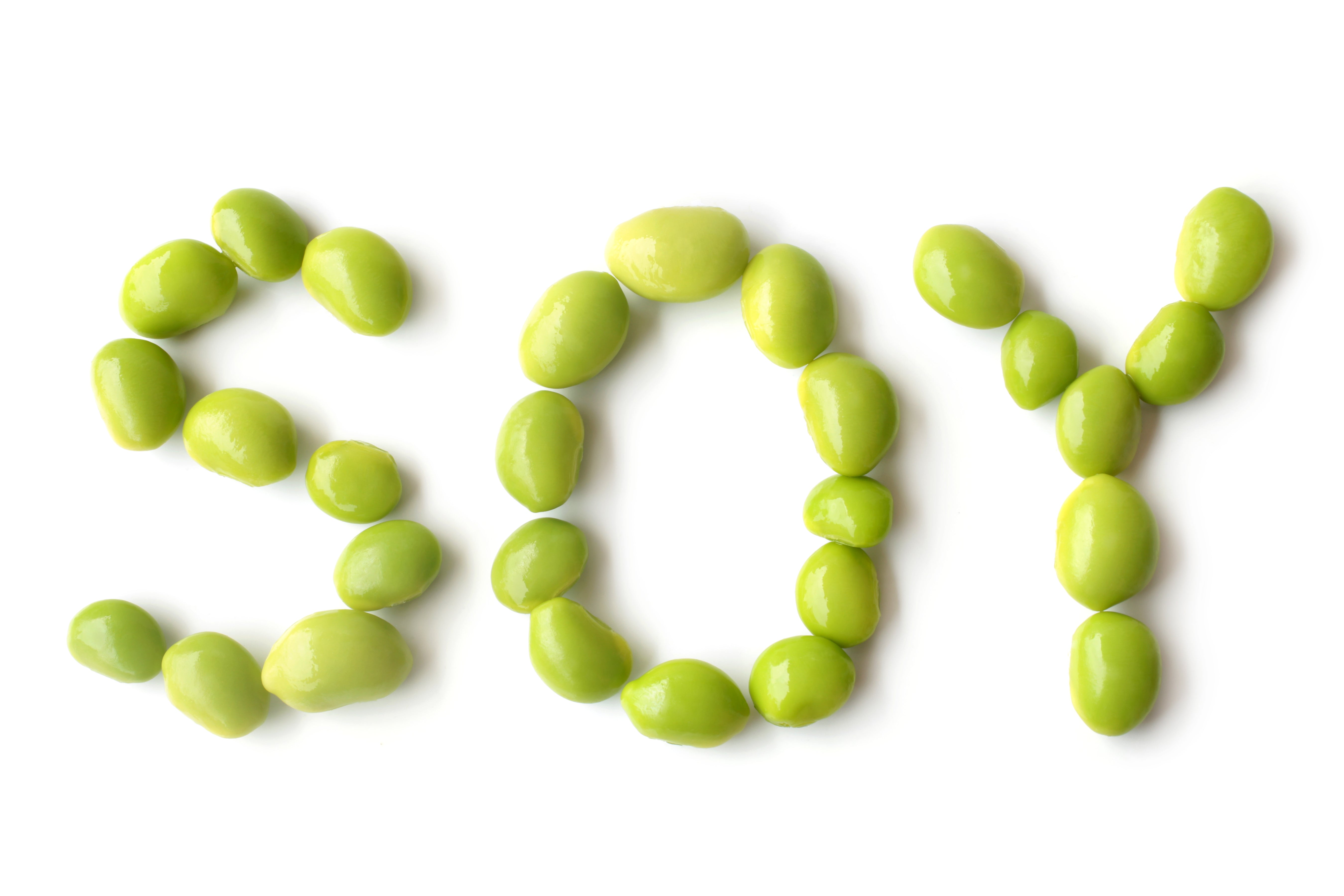All of them are essential for the healthy growth and development of teenage boys. You can find the different types across various foods, including beans, dairy products, grains, and leafy greens. If your teenager is on a strictly vegetarian diet, you might want to consider multivitamin supplements that contain these essential nutrients. The formulas also contain vitamin D, magnesium and zinc which contribute to the maintenance of normal bone health.
Although more supplementation studies are needed, ensuring vitamin D adequacy throughout childhood and adolescence seems prudent. According to the Endocrine Society, at least 600 IU/day may be required to maximize bone health, and 1,000 IU/day may be needed to increase serum levels above 30 ng/mL (75 nmol/L) . Given the average vitamin D content of the diets of adolescents, supplementation may be necessary to meet this recommendation. Rainbow Light's multivitamin is a completely food-based multivitamin supplement.
It is a special formula designed to encourage the healthy growth and development of a teenage boy's brain. It is a product entirely free of dairy products and gluten, containing the essential nutrients you boy needs to remain calm and focused. Megafood is one of the best multivitamins for teenagers from 13 to 18 years old. This mixture of vitamins and minerals is compatible with healthy bones, immune function, and red blood cells with only three tablets per day.
The RDA of magnesium for those aged 14 to 18 years, 410 mg/day for boys and 360 mg/day for girls, was derived from results of balance studies in adolescents. Good dietary sources of magnesium include nuts, and green leafy vegetables because magnesium is part of chlorophyll — the green pigment in plants. Meats and milk have an intermediate magnesium content, with milk providing mg per cup . Although data are limited, some studies have found that a large percentage of adolescents have magnesium intakes below recommended levels ( ).
What Vitamins Should An 18 Year Old Male Take In an analysis of NHANES data, US adolescents who consumed milk had higher daily magnesium intakes than adolescents who did not drink milk . However, NHANES data show that US adolescents (12-19 years) on average only consume about 1 cup of milk daily . Low-fat milk, nuts, whole grains, and green leafy vegetables are important sources of magnesium for adolescents. If adolescents do not meet the RDA through dietary sources, LPI recommends a combined magnesium-calcium supplement.
Severe iron deficiency leads to iron-deficiency anemia; anemia affects more than 30% of the global population . Adolescents have increased requirements for iron due to rapid growth. Following puberty, adolescent girls have lower iron stores compared to adolescent boys .
Vitamin B6 is required for heme synthesis and in the synthesis and metabolism of amino acids— the building blocks of proteins. Thus, the vitamin has obvious relevance to adolescent growth and health. Dietary intake recommendations of vitamin B6 for adolescents were established by extrapolating data from adults, using metabolic body weight and accounting for growth. The RDA for boys aged 14 to 18 years is 1.3 mg/day, and the RDA for girls aged 14 to 18 years is 1.2 mg/day . Only a few studies have evaluated vitamin B6 status specifically in adolescents. The same investigators found more than 40% vitamin B6 inadequacy when a group of 112 adolescent girls (12- and 14-year-old) were followed for two years .
For information on dietary sources of the vitamin, see the article on Vitamin B6. Vitamin A intake recommendations for adolescents were derived by extrapolating the recommendation for adults using metabolic body weight, accounting for growth. For information on vitamin A content in foods, see the article on Vitamin A. Do not blame it on your parents if you are not as tall as you would like to be – it is not just your genes that determine how tall you become!
Apart from other environmental factors such as exercise, sleep, and living environment, you need to give your body the proper nutrients it needs in order to develop healthy bones and grow taller. These include all essential vitamins, including vitamin A, vitamin B-complex, vitamin C, vitamin D, and vitamin K. Read on to find out more about the best vitamins for teenage height growth and how you can acquire them from the foods you eat every day. The amount of bioavailable iron in food is influenced by the iron nutritional status of the individual and also by the form of iron . Individuals who are anemic or iron deficient absorb a larger percentage of the iron they consume than individuals who are not anemic and have sufficient iron stores . Although heme iron generally accounts for only 10-15% of the iron found in the diet, it may provide up to one third of total absorbed dietary iron .
The absorption of nonheme iron is strongly influenced by enhancers and inhibitors present in the same meal. For instance, vitamin C strongly enhances the absorption of nonheme iron by reducing dietary ferric iron (Fe3+) to ferrous iron (Fe2+) and forming an absorbable, iron-ascorbic acid complex. Organic acids, such as citric, malic, tartaric, and lactic acids, also enhance nonheme iron absorption. Further, consumption of meat, poultry, and fish enhance nonheme iron absorption, but the mechanism for this increase in absorption is not clear . Inhibitors of nonheme iron absorption include phytic acid, which is present in legumes, grains, and rice.
Polyphenols found in some fruit, vegetables, coffee, tea, wines, and spices can also markedly inhibit the absorption of nonheme iron, but this effect is reduced by the presence of vitamin C . Soy protein, such as that found in tofu, has an inhibitory effect on iron absorption that is independent of its phytic acid content . Vitamin C helps your body absorb iron, a mineral that facilitates the transportation of oxygen through your blood stream and helps regulate cell growth.
Vitamin C helps to keep your cells healthy and, as an antioxidant, may protect you from illness. The recommended daily intake is 75 milligrams of vitamin C for teen boys and 65 milligrams for teen girls. Specifically, data used by the FNB to determine calcium accretion came from a recent longitudinal study in 642 Caucasian adolescents aged 14 to 18 years .
Thus, the RDA was set at 1,300 mg/day; this level of calcium intake is expected to cover the needs of 97.5% of adolescents. Vitamin C has a number of important roles during growth and development, including being required for the synthesis of collagen, carnitine, and neurotransmitters . Vitamin C is also a highly effective antioxidant and is important for immunity .
Further, vitamin C strongly enhances the absorption of nonheme iron by reducing dietary ferric iron (Fe3+) to ferrous iron (Fe2+). Specifically, iron absorption is two- to three-fold higher with co-ingestion of 25 to 75 mg of vitamin C . This has special relevance to adolescent health, considering the fact that iron deficiency is prevalent among adolescents, especially girls .
However, when accounting for intake from fortified foods, less than 5% of individuals in that age group have intakes below the EAR . The US Food and Drug Administration implemented legislation in 1998 requiring the fortification of all enriched grain products with folic acid . Globally, more than 50 countries have mandatory programs of wheat-flour fortification with folic acid, but flour fortification is not common in Europe . Dietary folate inadequacy is common among adolescents in European nations, especially girls . It consists of some of the core nutrients like Vitamins A, B, C, D, K2, and the B-Complex. Some of the minerals they include are folic acid, calcium, iron, and niacin, among many more.
The specialized formulation is ideal for teenage boys of growing age. It promotes better health and healthy muscle growth; it boosts the immune system and improves the cell function in your teenage boy. It has a unique formula that consists of multiple vitamins and minerals in the right combination to help your teenage boy maintain strength, healthy growth, and optimal development. It helps boost their energy levels for physical activities, contains 100% organic ingredients, and is even 100% approved for vegetarian consumption.
This has all the vitamins and minerals essential for the healthy growth of the brain, immune system support, skin, and overall health of your teenage girls and boys. Multivitamins for teen girls and boys are the best thing to take as they support healthy skin, metabolism, mental focus, and immunity. In this article, we will discuss some of the best multivitamins for teenage girls. Anyone who struggles to eat a healthy, varied, and balanced diet may benefit from taking supplements.
For teenagers, it may be helpful to take iron, calcium, and vitamin D if you feel you are lacking these essential vitamins and minerals. Before you or your teenager start taking any new supplements it's a good idea to check with your GP or a pharmacist. The Olly multivitamin delivers a daily dose of 18 essential nutrients, which includes the B vitamins, antioxidants, vitamin D, and calcium. This gummy vitamin also features a blend of vitamins A, C, and E, as well as biotin and folic acid to support energy and bone health, DeFazio explains. "To get your daily dose, all you have to do is put one into your mouth and chew, making it an easy choice for adults and kids alike who dislike swallowing large pills," she adds.
These energizing multivitamins for men deliver 100 percent daily recommended value of 19 vitamins and minerals. High-potency B vitamins help convert food into energy, and other essential nutrients help bone health, heart health, immunity, metabolism, muscle function and more. An optimum nutritional intake during adolescence and young adulthood can help set the stage for lifelong health.
Teenagers need to have sufficient vitamins and minerals to ensure healthy development during growth spurts, plus as they undergo significant physical and biochemical changes in their bodies. So the importance of obtaining the right nutrients in the diet is vital, just at a time when this may not be a top priority for some busy teenagers. The B vitamin, folate, is required as a coenzyme to mediate the transfer of one-carbon units. Folate coenzymes act as acceptors and donors of one-carbon units in a variety of reactions critical to the endogenous synthesis and metabolism of nucleic acids and amino acids . Moreover, higher intakes of folate in adolescents have been linked to better academic achievement .
Like other B vitamins, adolescent intake recommendations for folate were extrapolated from adult recommendations, using metabolic body weight and accounting for growth. The RDA for adolescents aged 14 to 18 years is 400 μg/day of dietary folate equivalents . Adding a variety of foods to a teen's diet can help her get what she needs, and supplementing with multivitamins may benefit some teens. These multivitamins are loaded with B Vitamins that help the production of energy in a teenage boy and boost carbohydrate metabolism. It also consists of key electrolytes necessary for proper muscle function.
Additionally, each dose provides a variety of essential minerals, antioxidants, and vitamins that support immunity, skin health, and overall fitness in teenage boys. A deficiency in minerals and essential vitamins in teenage boys can adversely affect the growth and development of secondary sexual characteristics in them as they grow. The deficiency of essential nutrients can lead to poor performance in physical activities and sports. Coming from the Olly store, this multivitamin supplement comes in bottles that contain 70 gummies that offer you a monthly supply.
Each gummy is rich in 15 important vitamins and minerals that provide young teenage girls with high energy levels and boost their overall health. These are the best vitamins for teenagers and provide support to the immune system, increase energy, can reduce acne breakouts, promote healthy skin, eyes, and brain. It provides support for the development, and that is why this is also one of the best multivitamins for teenage growth.
It's important for teenagers to get all the necessary vitamins daily. However, several vitamins are particularly important for growth, development and sustained energy levels. Fill your diet with a variety of vitamin-rich foods to get plenty of vitamins, as well as other nutrients, without having to worry about taking dietary supplements. A yummy chewable multivitamin, the Solgar Kangavites Vitamin tablets are available in a sweet berry flavor. A blend of multivitamins and minerals, the Solgar multivitamin tablets give your teens the recommend DV every day. Like other multivitamins, these are just dietary supplements and are best taken just before or after food.
Teenagers can take one tab in the morning with breakfast, and the other in the evening for optimal results. "Vitamin D is essential for good bone health and for most people sunlight is the most important source of vitamin D. Enjoying the sun safely, while taking care not to burn, can help to give the benefits of vitamin D without unduly raising the risk of skin cancer. Vitamin D supplements and specific foods can help to keep up sufficient levels of vitamin D, particularly in people at risk of deficiency. Vitamin A promotes proper bone growth and tooth development, making it a vital nutrient for all children and adolescents.
According to the Linus Pauling Institute, teens in industrialized countries tend to have low intakes of vitamin A, which is a necessary nutrient for adolescent development. Teen boys should get 900 micrograms, or 3,000 international units, of vitamin A per day, while teen girls need 700 micrograms, or 2,333 international units of vitamin A daily. Each box contains 120 chewable tablets, and each of them contains 22 crucial vitamins and nutrients. This premium formula contains 25 plus multivitamins and minerals specifically formulated for teenage boys and girls aged 12-18. The product features 25 important vitamins and minerals such as plant-based calcium, magnesium, and vitamin D. All of these nutrients are necessary for teens to build strong and healthy bones and muscles.
The usually recommended allowance for teen girls is 1,000 mg/day for 4-8 years old teenage girls while for 9-14 years is 1,300 mg/day. We have considered numerous websites and hundreds of user reviews to curate this list of essential multivitamin supplements for teenagers. We have ensured that these products are safe and meet the necessary criteria. Each item on the list has a detailed description of the nutritional value, ingredients, and factors indicating the need for each of these supplements. You can choose one your child needs based on the their requirement and the doctor's advice. The Maxi Teen Supreme dietary supplement is a doctor-formulated multivitamin for girls.
The powerful antioxidants present in the tablets cleanse the impurities in the body. This multivitamin will be an added advantage in boosting growth in adolescence. The tablet helps with memory function, improves muscle health, and strengthens bones and organs.
In addition, these tablets are infused with a digestive enzyme that enhances the absorption of the nutrients in the pill, thereby maximizing its benefits. When your teenager transitions from a child to a young adult, he or she will need enough calcium for developing healthy bones and teeth. Sufficient amounts of vitamin D and calcium during the growing years will also prevent the possibility of osteoporosis in women. The Nature Made Calcium 500mg + Vitamin D tablets contain calcium and vitamin D in their natural form, derived from natural ingredients. It comes in a neutral flavor and is free of allergens like gluten or artificial ingredients.
Mykind Organics' women's once-daily multivitamin is specially formulated from nutritious and organic whole foods. Each once-a-day pill provides 15 vitamins and minerals including activated forms of vitamin B12. This product is also certified organic and is vegan, gluten-free, non-GMO, and free of synthetic binders and fillers.


















































